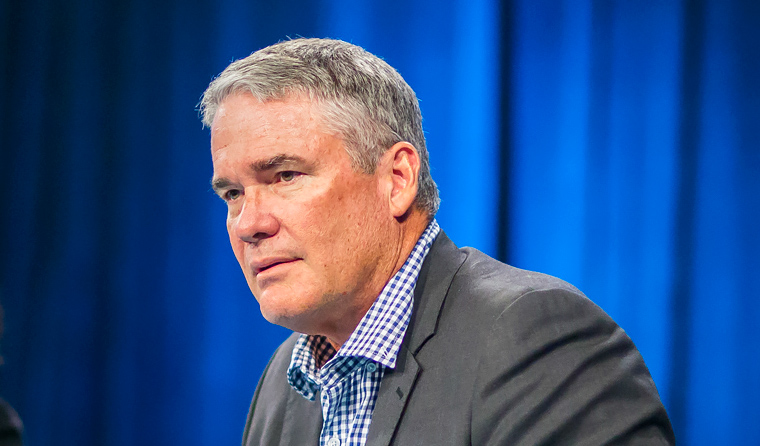News
New pharmacy dispensing deal sets ‘great temptation to bend the rules’
Continued dispensing arrangements have been extended – but two prominent GPs are sceptical about the long-term outcomes.
 Under the extended agreement, patients are able to continually access PBS-subsidised medicines without a prescription until 30 September.
Under the extended agreement, patients are able to continually access PBS-subsidised medicines without a prescription until 30 September.
The Pharmaceutical Society of Australia (PSA) is pushing to make continued dispensing arrangements – in place since Australia’s bushfire crisis and extended due to coronavirus – permanent.
The current arrangement will allow Australians to continually access essential Pharmaceutical Benefits Scheme (PBS)-subsidised medicines without a prescription until at least 30 September, with the Federal Government citing the ongoing impact of COVID-19 as justification for the extension.
But GP and Chair of the RACGP Expert Committee – Quality Care (REC–QC) Professor Mark Morgan believes more transparency is needed on how the scheme will work over the long term for GPs and their patients, especially if the PSA is advocating for it to become the status quo.
‘Detail is missing about how this scheme is being evaluated and about how adherence to the rules is ensured,’ he told newsGP.
‘We have to remember that community pharmacists are working in a retail environment – patients are customers. It is hard to disappoint customers, so there will be a great temptation to bend the rules.
‘GPs know their patients and communities. They are widely distributed and more accessible than ever with Medicare-funded telehealth, so it is hard to imagine many situations when the Continued Dispensing Emergency Measures will be needed.’
Medicines supplied under the continued dispensing arrangement must have been previously prescribed, and be for the continuation of current and essential treatment, where it is not possible or convenient to obtain a prescription due to the risk of COVID-19 and the increased demands placed on the health system.
Dr Evan Ackermann, immediate past Chair of the REC–QC, agrees that while the dispensing arrangement is understandable in emergency situations, such as COVID-19, the extension starts to raise issues.
‘These temporary arrangements were put in place in January in response to the bushfire crisis and then extended as the COVID-19 pandemic started,’ Dr Ackermann told
newsGP.
‘One of the key responsibilities in accountable prescribing is to monitor the impacts and effects of your prescription.’
Dr Ackermann believes GPs should remain at the forefront of prescribing once 30 September arrives.
‘[These dispensing arrangements] allow consumers to continually acquire their PBS-subsidised medicines without obtaining a valid prescription from their GP,’ he said.
‘Continued monitoring is a core quality issue for any chronic disease. It is a very short-sighted strategy to effectively stop or sidestep reviews by the responsible prescriber.
‘Pharmacists want to usurp this role, but in reality they have no experience and little insight into a prescribers’ therapeutic rationale, chronic disease management, or management in the context of multimorbidity.’
 Professor Mark Morgan says it is important for community pharmacists and GPs to work together and understand each other’s roles and responsibilities.
Professor Mark Morgan says it is important for community pharmacists and GPs to work together and understand each other’s roles and responsibilities.
Professor Morgan said that although there is PSA guidance designed to ensure patient safety, the circumstances in which pharmacists can dispense medications without a prescription are ‘very tightly defined’ so there should be very few circumstances when it is necessary.
The PBS outlines that such circumstances include when:
- the person has an immediate need for the medicine
- the person was prevented from accessing a prescriber, face-to-face or via telehealth, to obtain a new prescription
- it is not possible to obtain an image-based script or approval for an ‘owing prescription’ from a prescriber
- the medicine is eligible for supply under the arrangements – including under relevant state/territory legislation
- the person has been supplied the medicine in the last six months and their condition is stable
- the medicine has not been supplied under Continued Dispensing arrangements to the person by any pharmacy within the 12 months before the requested supply
- it is safe and appropriate for the person to obtain the medicine.
Echoing Dr Ackermann’s view, Professor Morgan believes the onus of prescribing should ultimately sit with the GP, but in collaboration with pharmacies.
‘I think it is important for community pharmacists and GPs to work together, communicate well and to understand each other’s roles and responsibilities,’ he said.
‘That way patients receive the medications they need, at the time they need it, with minimum cost, minimum inconvenience and without being upsold unnecessary supplements and low-value treatments.’
Both GPs agree that some risks may evolve, particularly around medication management and safe prescribing.
‘There are rare but important risks involved,’ Professor Morgan said. ‘For example, where a medicine has been ceased for sound medical reasons but the patient has not fully understood.
‘You can imagine situations where the medicine inadvertently gets recommenced by a pharmacist.
‘We know that people often don’t have a clear understanding of their medicine lists, reasons and precautions for each, despite attempts to include this information in consultations. We also know that when you try to reconcile medication lists there are many discrepancies with no single source of truth.’
Professor Morgan questions whether patients requesting the dispensing service will go to such lengths as bringing a paper bag with all their medicines and supplements, along with recent pathology results, physical measurements and a comprehensive medical history.
 Dr Ackermann believes GPs should remain at the forefront of prescribing once 30 September arrives.
Dr Ackermann believes GPs should remain at the forefront of prescribing once 30 September arrives.
The
omission of extended dispensing from the seventh
Community Pharmacy Agreement (7CPA) means that many patients on long-term medications will need to continue to obtain these from pharmacies on a monthly basis – a remodel RACGP President Dr Harry Nespolon recently
called ‘disappointing’.
The college has previously called for the doubling of the dispensing limit to 60 days.
‘It seems to me that convenience, social distancing, continuation of stable medicine supply would all be helped if pharmacists dispensed two or three months at a time,’ Professor Morgan said.
‘This was very strongly rejected by the Pharmacy Guild on pure financial grounds, despite being recommended by commissioned reports and announced for consideration by the [Federal Health] Minister.’
Dr Ackermann also believes this outcome brings with it potential medication management risks.
‘The PSA was asleep at the wheel at the recent [7CPA] negotiations, and achieved nothing for their members in any funding or professional development sense,’ he said.
‘They fell over backwards for the business demands of the Pharmacy Guild. Both the Guild and the PSA have a long history of medication policy misjudgements – [such as] codeine, opioids, increased dispensing quantities – so that no one rates their health policy opinions that much anymore.
‘I think patients will naturally return to their GPs for prescriptions.’
Log in below to join the conversation.
continued dispensing Pharmaceutical Benefits Scheme prescribing
newsGP weekly poll
How often do patients ask you about weight-loss medications such as semaglutide or tirzepatide?